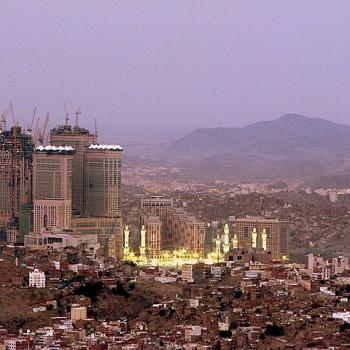This is Day 15 of the 2018 #30Days30Writers Ramadan series.
There are a lot of articles written during Ramadan about what Ramadan means, about what we as Muslims should be “getting out” of Ramadan, what the benefits of Ramadan should be. But I think that these sorts of articles miss the point of ibadat. As we reach the midway point of Ramadan and are more so settled in the routines of our daily fasts (perhaps more wearied, perhaps less excited), it’s important to re-center ourselves on ibadat.
What does ibadat actually mean? The word connotes worship with submission – not just prayer but acts of piety in which we submit ourselves to Allah. In a more technical sense, ibadat is the liturgical aspect of orthopraxy – physical actions that are prescribed by the faith.
The purpose of ibadat first and foremost is to Do.
Fasting is the singular act of ibadat that truly defines Ramadan. And, there are certainly no shortage of analyses as to its effect – medical literature, Quran verses, poets, bloggers all ruminate on the benefits of fasting. Fasting is such a distinctive ibadat that it is natural to want to understand it. In trying to understand why we should fast, what it essential boils down to is “why should I bother?”
But in truth – fasting is in a way an end in and of itself. The reasons we fast are because we are commanded to. We entrust to Allah that there is a reason and that there are benefits, and we are eager to seek and learn what those are. But that is not the reason we fast. We fast because we submit to Allah, as Allah commands (2:185). That submission is ibadat.
The other great pillar of Ramadan is the Quran. In a very real sense, the Quran is the foundation of ibadat in Ramadan. Reading a translation of the Quran is useful for attaining insight into what the holy book teaches and makes the message more accessible at a basic level to everyone. However, the Qur’an is not just a text containing information to be consumed or processed. It is also a divine revelation in a language chosen by Allah.
There is simply no substitute for reading the Quran in Arabic, regardless of your comprehension. Sitting with the Quran and reading it aloud in the original Arabic is ibadat – you submit yourself fully to the rhythm and the music of the verses, as laid down by the Creator, exactly as given to the Prophet, during that first Ramadan.
You needn’t be a master of the art of reciting Quran (Tajweed) like Husary – you can learn how to read Quran in Arabic quite quickly – there are even apps for Android and iOS. We should strive to understand the meaning of the Quran as well in whatever language we are comfortable in but striving to read it in Arabic is a beauty unto itself.
There’s nothing wrong with wanting to understand our faith or seeking meaning. But that is secondary. Ibadat is its own reward.
A version of this originally appeared in Beliefnet on the City of Brass blog.














